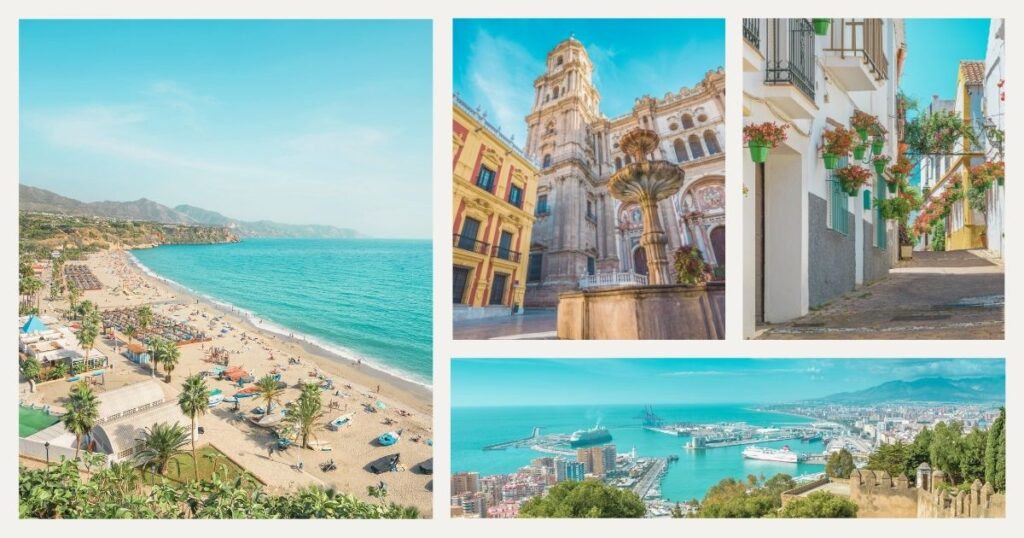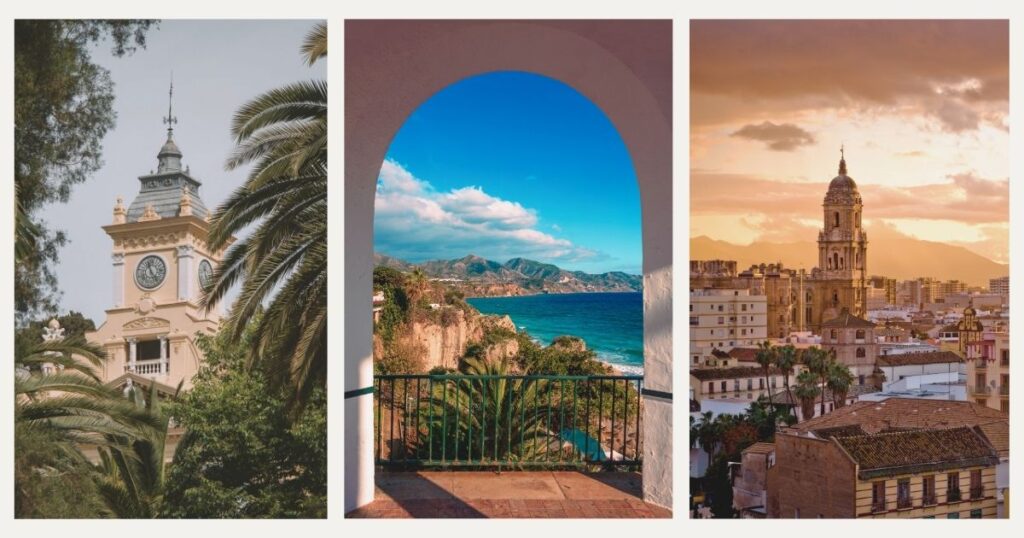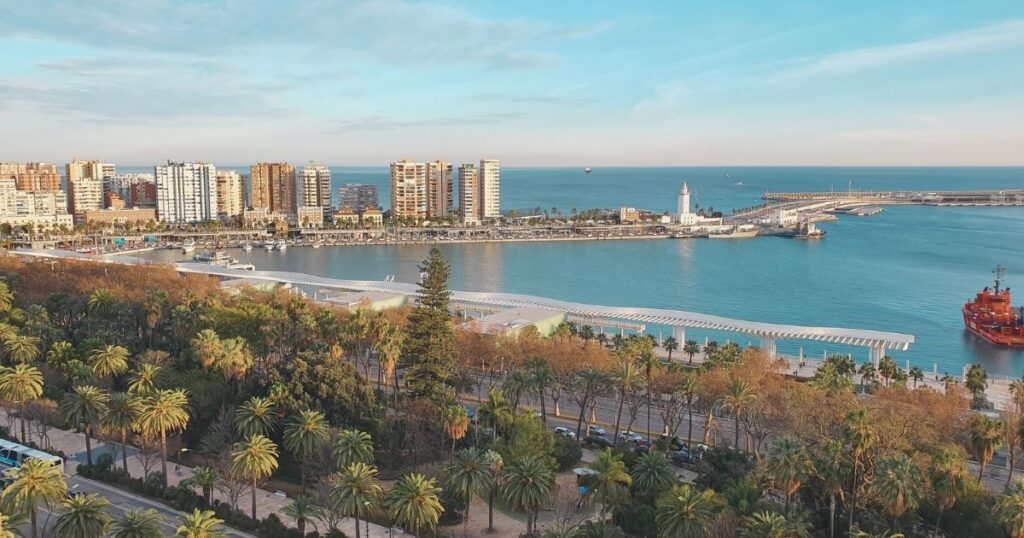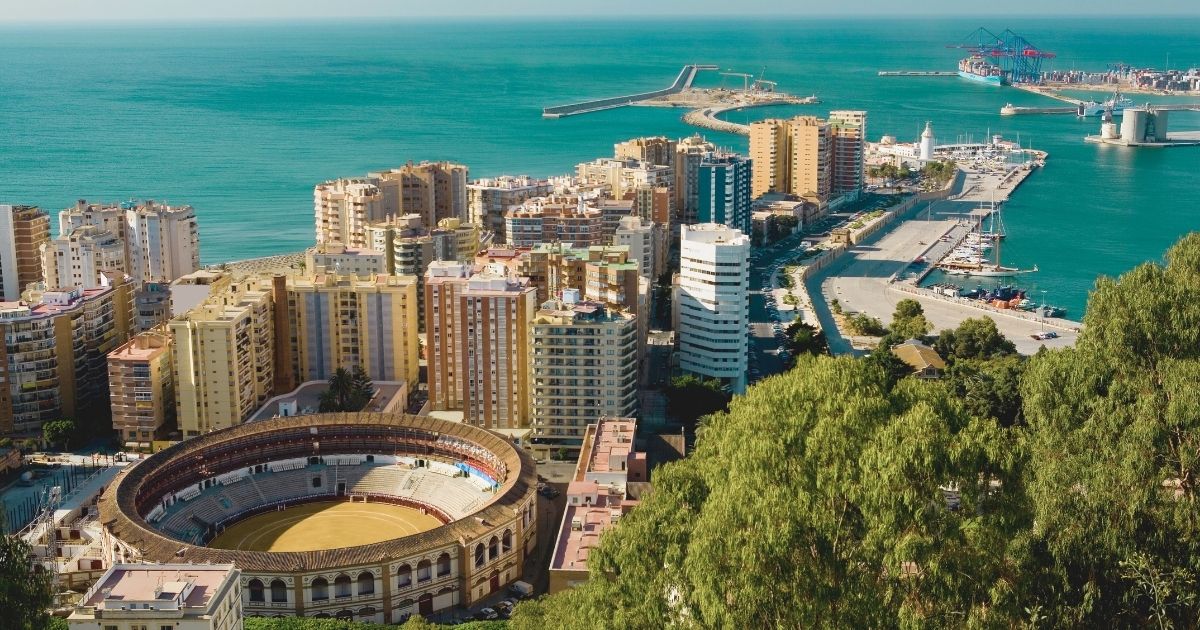With year-round sunshine, affordable living costs, and a growing tech scene, Malaga has become one of Europe’s most appealing destinations for location-independent professionals. Moreover, this Mediterranean gem offers the perfect mix of modern infrastructure and traditional Spanish charm, making it ideal for digital nomads seeking both productivity and quality of life.
In addition, this comprehensive Malaga travel guide explores everything from the best neighborhoods and coworking spaces to local transportation options and cultural experiences that make this Andalusian city truly special.
Understanding Malaga’s appeal for remote workers

Before diving into specific recommendations, it is important to understand why Malaga has become a hotspot in many digital nomad travel guides and community discussions. For one, the city offers a compelling combination of traditional Spanish charm and forward-thinking infrastructure. As a result, it has become particularly suitable for location-independent professionals who want both a productive work environment and an enjoyable lifestyle.
The perfect climate for productivity
With over 320 sunny days per year and mild winters, Malaga’s climate creates an ideal environment for maintaining a healthy work-life balance. Because of the consistent good weather, you can work from beachside cafés, take mid-day breaks for swimming, or enjoy evening walks along the promenade throughout the year.
🌟 Pro tip: try scheduling your most challenging work tasks for the morning hours, before 11 am, to maximize productivity before the Mediterranean heat peaks. then, you can use the afternoons for meetings, lighter work, or exploring the city.
A growing digital infrastructure
Malaga has invested heavily in becoming a tech hub, which has earned it the nickname “the Malaga Valley” of Europe. As a result, the Andalusian Technology Park (PTA) now hosts over 600 companies and has attracted international tech giants like Google, which opened an excellence center there in 2023.
💡 Did you know? Malaga is home to one of Spain’s largest startup ecosystems outside of Madrid and Barcelona, with over €300 million in startup investment flowing into the city between 2020-2023.
Essential areas to live in Malaga

Any thorough Malaga travel guide should include information about where to base yourself. The city offers diverse neighborhoods that cater to different preferences and budgets.
Centro histórico: the cultural heart
The historic center combines narrow, charming streets with beautiful plazas and an abundance of tapas bars and cafés. Consequently, living here means being steps away from major attractions like the Picasso Museum and the Alcazaba. However, apartments tend to be smaller but full of character, with rental prices averaging €800-1,200 per month for one-bedroom units.
El Palo: beach living with local flavor
This former fishing neighborhood offers a more authentic Malagueño experience with direct beach access and excellent seafood restaurants. In addition, it is connected to the center by efficient bus routes and the seaside promenade. Therefore, digital nomads appreciate El Palo for its relaxed atmosphere and more affordable accommodations, typically €600-900 per month.
🌟 Pro tip: when apartment hunting in Malaga, prioritize properties with air conditioning and good insulation. Summer temperatures regularly exceed 30°C (86°F), and many historical buildings retain heat, which can affect both comfort and productivity.
Pedregalejo: upscale beachfront living
Adjacent to El Palo, Pedregalejo offers a slightly more upscale beachfront experience with charming chiringuitos (beach restaurants) and a relaxed village feel, despite being just 15 minutes from downtown. As a result, it is popular among expats and long-term digital nomads willing to pay a premium, around €900-1,400 per month, for quality of life.
Top workspaces in your Malaga travel guide

Productive work environments are essential for digital nomads, and Malaga offers diverse options from high-end coworking spaces to laptop-friendly cafés.
Premier coworking spaces
Malaga boasts several excellent coworking facilities. For instance, the Workshop stands out for its central location near Plaza de la Constitución and offers hot desks from €15/day or €150/month. In addition, other notable spaces include La Térmica, which features cultural programming, and Grow Working near the port area.
Most spaces also offer meeting rooms, high-speed fiber internet, networking events, and community activities. Consequently, these are essential elements for productive remote work that any Malaga travel guide should highlight.
Connectivity solutions for digital nomads
Staying connected is non-negotiable for remote workers. While Malaga’s public WiFi can be found in many squares and public buildings, reliability varies. Similarly, most cafés and restaurants offer free WiFi, but connection speeds may not be suitable for video calls or data-intensive work.
Therefore, for guaranteed connectivity throughout your stay, consider a reliable travel eSIM from Holafly that provides seamless data coverage across Spain. This allows you to work from any location—whether it’s a secluded beach in Nerja or a mountain viewpoint in the Montes de Málaga—without worrying about connectivity issues.
Laptop-friendly cafés
For those who prefer a change of scenery, Malaga offers numerous cafés welcoming to digital nomads. For example, Julia Bakery in Soho provides excellent coffee, pastries, and reliable WiFi. Similarly, Brunchit, with several locations, offers comfortable seating and plenty of power outlets. Additionally, Café Central in Plaza de la Constitución combines historic surroundings with modern amenities.
Key considerations when choosing a workspace in Malaga:
- Availability of power outlets
- WiFi speed and reliability
- Ambient noise levels
- Comfort of seating for longer work sessions
- Air conditioning during summer months
- Attitude toward customers who stay for several hours
🌟 Pro tip: Most cafés become crowded during traditional Spanish lunch hours (2-4 PM). Therefore, plan your café working sessions for morning or late afternoon to maximize productivity.
Navigating the city in your Malaga travel guide

Understanding transportation options is essential for maximizing your experience, and this Malaga travel guide highlights the best ways to get around efficiently.
Public transportation network
Malaga boasts an efficient and affordable public transportation system. For example, the metro has two lines connecting key areas, while buses reach every neighborhood. A single bus ticket costs €1.30, but the rechargeable travel card (€0.90 per trip) offers better value. Moreover, for frequent travel, consider the monthly unlimited pass (€39.95).
The city is also serviced by a bicycle-sharing system called Málagabici, with stations throughout central areas—perfect for short trips or exploring the extensive beachfront promenade. In addition, for those staying longer, downloading the EMT Málaga mobile app provides real-time updates on bus arrivals and allows you to plan routes efficiently across the city.
Walking remains one of the best ways to experience Malaga, since most central attractions are within a 20-minute stroll of each other. The flat terrain and well-maintained sidewalks make it pedestrian-friendly, while the seafront promenade offers a scenic 7km stretch perfect for walking meetings or brainstorming sessions with ocean views.
Day trips from Malaga
One of Malaga’s advantages is its strategic location for exploring Andalusia. Therefore, your Malaga travel guide wouldn’t be complete without mentioning these excellent day trips:
Granada and the Alhambra are just 90 minutes away by bus or car. Similarly, the picturesque mountain town of Ronda can be reached in under two hours. Additionally, the beaches of Nerja and the famous “Balcón de Europa” make perfect weekend getaways, while Marbella and Puerto Banús offer glimpses into Spain’s luxury coastal lifestyle.
For nature enthusiasts, El Caminito del Rey (King’s Little Path) provides an unforgettable hiking experience through dramatic gorges just an hour from the city. Furthermore, Frigiliana, often cited as one of Spain’s most beautiful white villages, offers a perfect change of scenery with its winding cobblestone streets and breathtaking mountain views—ideal for a productive workday followed by an evening exploring its charming restaurants.
Airport connectivity
Malaga’s international airport connects to over 100 destinations across Europe and beyond, making it an excellent base for digital nomads who need to travel frequently. It is just 8km from the city center and connected by train (€1.80), bus (€3), and taxi (approximately €20).
Budget airlines serve Malaga extensively, with carriers like Ryanair, EasyJet, and Vueling offering affordable connections throughout Europe. As a result, it is possible to maintain client meetings in major European business hubs while basing yourself in Malaga’s more affordable and pleasant environment—a key consideration for any digital nomad consulting this Malaga travel guide.
Final thoughts on your Malaga travel guide
Malaga offers digital nomads a rare mix of excellent infrastructure, beautiful surroundings, rich culture, and relatively affordable living. Whether you’re planning a short workation or a longer-term base, this Andalusian gem delivers on every promise in this guide.
A city that keeps evolving
In recent years, Malaga has grown into both a tech hub and a tourism hotspot. As a result, remote workers enjoy the best of both worlds—modern coworking spaces, international communities, and nomad-friendly initiatives alongside historic charm.
Embracing the local rhythm
When you arrive, remember that Malaga rewards those who adapt to its pace. Late dinners, leisurely lunches, and midday breaks during the hottest hours let you work productively while still enjoying the Mediterranean lifestyle.
More than just practical benefits
Beyond the basics, Malaga’s true charm lies in its atmosphere. Picture ending your workday with a sunset stroll along Muelle Uno, sharing tapas at a lively market, or watching flamenco in a historic venue. The blend of Andalusian traditions and modern convenience creates an inspiring, functional environment for remote work.
Why many nomads stay longer
Interestingly, many digital nomads plan short stays here but end up extending their trips—or returning again and again. The combination of affordability, year-round pleasant weather, and Spain’s warm culture makes it hard to leave once you’ve built your routine.
Ready to start your adventure?
If you’re drawn to the Mediterranean lifestyle, the growing tech scene, or simply want a beautiful place to work remotely, Malaga ticks all the boxes. For details on visa requirements and legal considerations, see our complete guide to Spain’s digital nomad visa.
With this Malaga travel guide, you’re ready to make the most of this sunny Andalusian city while keeping your remote career on track. Nomada is here to help you find your perfect destinations around the globe.
Your Mediterranean workation adventure starts here 👉
Frequently asked questions about Malaga travel guides
Fall (September-November) and spring (March-May) offer ideal conditions with pleasant temperatures, fewer tourists, and lower accommodation prices. Summer is hot but lively, while winter remains mild with temperatures rarely dropping below 10°C (50°F).
A comfortable lifestyle, including accommodation, coworking, food, and entertainment typically costs €1,500-2,000 per month. Budget-conscious nomads can manage with €1,200-1,500, while those seeking luxury amenities should plan for €2,500+.
In tourist areas, hospitality businesses, and coworking spaces, English is commonly spoken. However, learning basic Spanish phrases will significantly enhance your experience and help with day-to-day interactions in residential neighborhoods.
Fiber optic internet is widely available in Malaga, with speeds ranging from 100-600 Mbps. Most coworking spaces and accommodations catering to digital nomads offer reliable high-speed connections suitable for video calls and data-intensive work.
Yes, Malaga has a growing digital nomad community with regular meetups, networking events, and skill-sharing workshops. Platforms like Meetup.com and Facebook groups like “Digital Nomads Malaga” are excellent starting points for connecting with fellow remote workers.



